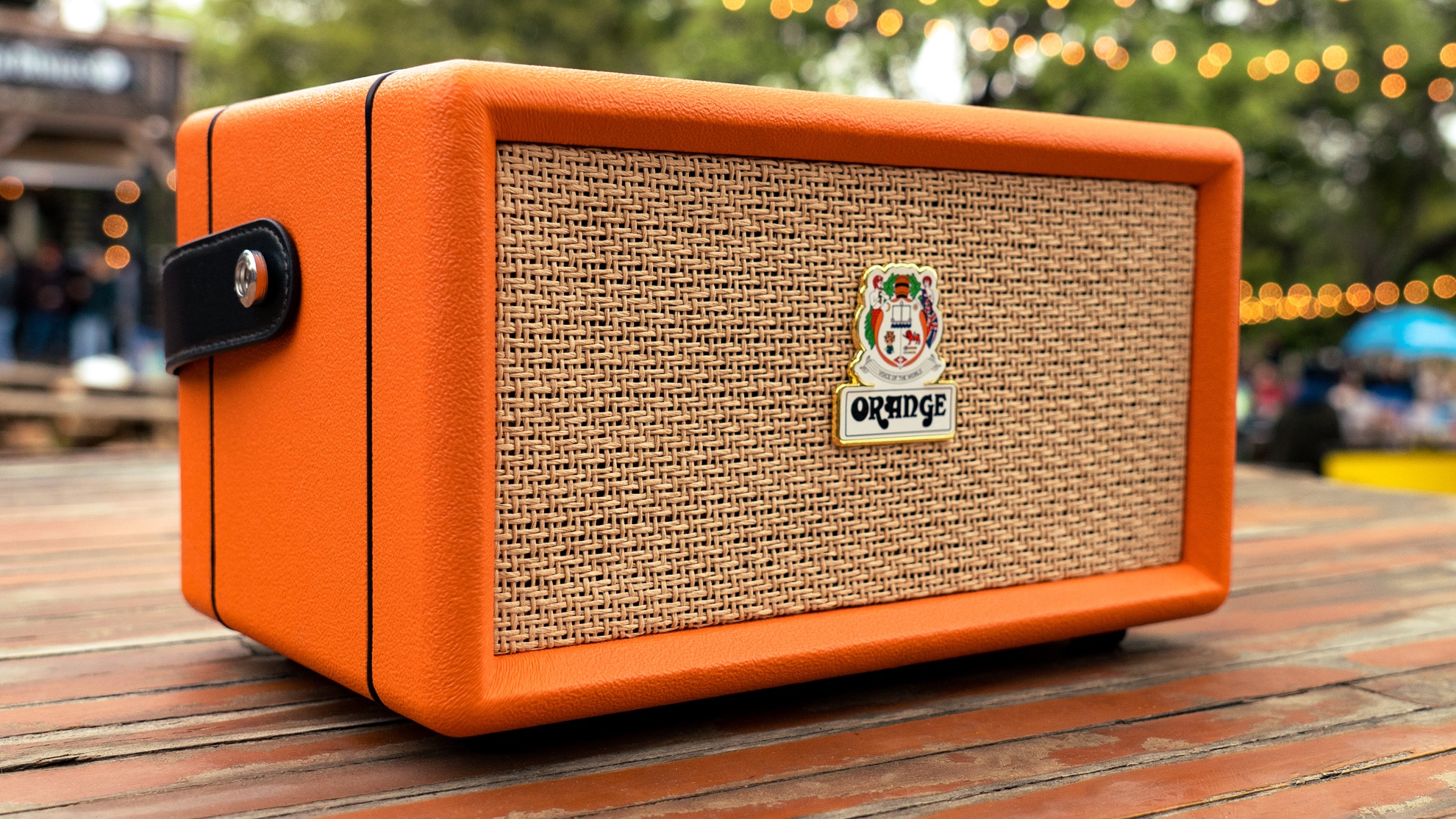Hit the road with Orange's seriously powerful portable speakers
Everywhere's a stage with the Orange Box and Orange Box-L

Some designs are iconic. The Braun clock. The Ames chair. The Orange amplifier. Listing the artists who've used Orange amps on stage would be an article in itself, as the amps have powered the performances of countless stars – from Stevie Wonder and Tina Turner to Slipknot and Oasis. And now you can put an Orange amp in your room or take it to the beach like one of the best wireless speakers thanks to Orange's two new Bluetooth speakers, the Orange Box and Orange Box-L.
Both Orange speakers are designed for music fans rather than music makers, although of course there's huge overlap between both groups. While these speakers look like the legendary stage amps, they're designed for offstage use in your kitchen, at your computer, in your room or – in the case of the Box-L – anywhere the music takes you.
The unique selling point here is that Orange's boxes are the only Bluetooth speakers on the market that use both Class D and A/B analogue amplifiers, which deliver tight bass, natural mids and the warmth that only analogue amps can really provide. They're designed to go very loud – they put out 50W RMS – but have built-in protection to ensure that you don't blow the speakers if you get too excited when you're playing Slipknot.
The difference between the two Boxes is that the Orange Box L is a mains-powered speaker with an integrated 5-inch subwoofer for deeper bass, while the Orange Box is lighter (3kg compared to 4.3kg), battery powered and promises 15 hours of playback between charges.
Both are on sale now, with the Orange Box going for $299 / £275 and the Orange Box-L for $345 / £315. Both speakers come in a choice of orange or black finishes.
Opinion: there's more to a great amp than a badge
Orange isn't the first guitar amplifier firm to get into the personal audio space: Marshall has been doing it for years, and its Acton, Stanmore and Woburn speakers are now in their third generation. I've heard a few Marshalls and I've found that they share a similarity with their on-stage predecessors, of which I've owned a couple and played through dozens – they can get unpleasantly harsh at the high end. That for me has meant that they're not necessarily my choice for the best Bluetooth speakers, although I've yet to hear the third generation with their redesigned and repositioned speaker setups.
The worry with iconic brands is that you're buying a badge of engineering rather than actual engineering, with the brand's look being copied but not its underlying ethos. I don't think that's the case here, because Orange is famous among musicians for staying true to its amps: it doesn't really do what's trendy or cut corners to make its amps more affordable (which is why I don't own one; as much as I'd love a Rockerverb Neo MKIII, I don't have over $2,000 to buy one). So the inclusion here of analogue amplification makes my ears prick up: that's not something you do if you're trying to use your logo on a Chinese-made cheapie.
Sign up for breaking news, reviews, opinion, top tech deals, and more.
I wouldn't buy any kind of speaker unheard, because as with guitar amps so much of it comes down to your personal preference and the kind of music you play. But the specs suggest these speakers are going to sound just as good as they look. Just don't buy a black Orange. That's just wrong.

Contributor
Writer, broadcaster, musician and kitchen gadget obsessive Carrie Marshall has been writing about tech since 1998, contributing sage advice and odd opinions to all kinds of magazines and websites as well as writing more than twenty books. Her latest, a love letter to music titled Small Town Joy, is on sale now. She is the singer in spectacularly obscure Glaswegian rock band Unquiet Mind.
